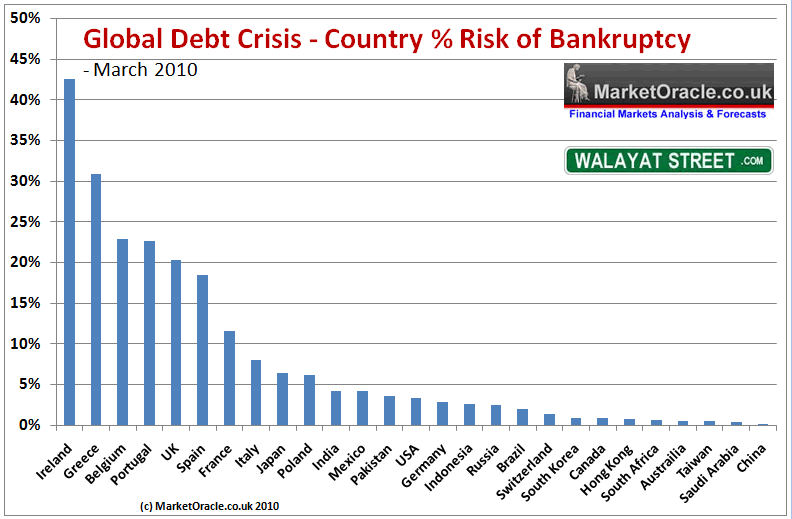Falling Oil Prices Could Bankrupt These Countries
Post on: 19 Апрель, 2016 No Comment

The price of crude oil has fallen sharply as of late, trading around $45 per barrel down from a high of over $100 just six months ago. The Organization of Petroleum Exporting Countries ’ decision not to scale back production, coupled with a strong dollar and weaker than expected demand from China, has helped spur this recent price decline. Many oil-producing countries are feeling the pinch as oil exports are a key component of their GDP. But not all countries will suffer equally, since some nations extract oil at different costs. Countries with costly oil extraction could see their national economies suffer, potentially leading to sovereign bankruptcies. (For more, see: What Determines Oil Prices .)
Break Even Price for a Barrel of Oil
The country most likely to be hurt by cheap oil is Libya. Oil production has been prone to disruption since the fall of Colonel Muammar Ghadhafi in 2011. Since then, infighting between rival militias and extremist groups has kept the cost of production excessively high. Libya needs oil prices to rise to $184 per barrel to break even in 2015, and the current fall in the price of oil has cost its economy a full 23 points in GDP.
Iran has been hurt by economic sanctions from the West for decades, limiting its scope as an oil exporter. As a result, Iran’s actual daily production is much smaller than its capacity – making it expensive to maintain idle infrastructure and under utilized capability. In order to balance its budget, Iran needs oil to fetch $131 per barrel. The decline in oil has cost Iran’s economy approximately $27.13 billion.
Algeria has also faced slowing production and needs oil to sell for just over $130 per barrel. The North African nation has joined Iran as a vocal proponent of higher oil prices during OPEC meetings. Algeria has lost over $28 billion due to the drop in oil.
Nigeria is Africa’s largest economy, but it suffers from rampant corruption and regular theft of domestically-produced oil. Currently, Nigeria needs oil to trade at just under $123 per barrel to balance its budget, and its economy has lost a whopping $42.5 billion in economic output.
While Saudi Arabia has been the staunchest advocate of not scaling back oil production within OPEC, the kingdom needs a high oil prices to fund public sector employees’ salaries and public programs. The International Money Fund estimates Saudi Arabia needs oil to sell for $106 per barrel in 2015. While the low price has cost the economy $178 billion, Saudi Arabia has enough cash reserves to sit on low oil prices for a while, and can outlast other, smaller nations. Some have speculated that the Saudis are purposefully producing excess oil at a loss to thin the competition.
Loading the player.
Iraq needs oil to be at $100.50 per barrel, but the high expense is mainly due to geopolitical conflict that still plagues the region. Attacks by the Islamic State and Sunni-Shiite infighting have kept costs unusually high. Additionally, following the US-led invasion of 2003, Iraq agreed with OPEC to produce no more than 30 million barrels a day to keep production at a pre-set ceiling. (For more, see: Oil and Terror: ISIS and Middle East Economies .)

Outside the Middle East
Venezuela has consistently subsidized the price of oil and gasoline for its citizens, making it one of the cheapest places on Earth to fill up a tank of gas. Now that the price of oil has fallen, those years of subsidized prices are coming back to haunt the nation, who many feel is on the verge of economic collapse. Venezuela’s break-even price is $117.50, and its economy has lost over $35 billion due to the decline in oil prices. (See also: Not All Oil Economies Are Created Equal .)
The Russians played a dangerous game by invading Crimea and starting a conflict with the Ukraine over natural gas and oil exports. Russia needs the price of oil to be $98 or higher in order to produce it at a profit, and its economy, along with the value of the ruble, have been hit hard as a result. Over $150 billion has been lost in GDP to the low price of oil, and many fear that Russia may yet again default. (For more, see: Sanctions & Oil Prices Bring The Russian Economy Near Collapse .)
In recent years, the United States has become an important oil exporter due to a concerted effort to develop and expand shale oil production. Notoriously difficult and expensive to extract, the shale oil industry saw a flood of capital investment when oil hovered above $100 a barrel. The break-even prices vary depending on the producer and the type of rock used in extraction, but $75 is approximately the average price needed to operate at a profit. With oil significantly below this threshold, the shale oil sector has seen unemployment as well as bankruptcies. The fear is that since almost half a trillion dollars in bank financing funded much of the capital investment, low oil may hurt the financial sector and economic growth. (For more, see: A Guide to Investing in Oil Markets .)
The Bottom Line
While low oil prices have been a welcome respite at the pump, the impact to oil producing nations could be dire, leading to the potential sovereign default and economic collapse of several nations. While Venezuela, Iran and Russia are normally singled out as those to fall first, even the United States has been negatively affected. These problems will only worsen if oil prices remain low for a prolonged period of time.














